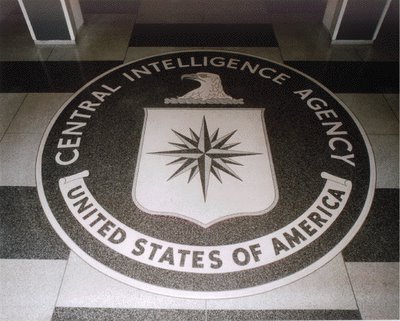Qaeda-Iraq Link U.S. Cited Is Tied to Coercion Claim

By DOUGLAS JEHL
Published: December 9, 2005
Editors' Note Appended
WASHINGTON, Dec. 8 - The Bush administration based a crucial prewar assertion about ties between Iraq and Al Qaeda on detailed statements made by a prisoner while in Egyptian custody who later said he had fabricated them to escape harsh treatment, according to current and former government officials.
The officials said the captive, Ibn al-Shaykh al-Libi, provided his most specific and elaborate accounts about ties between Iraq and Al Qaeda only after he was secretly handed over to Egypt by the United States in January 2002, in a process known as rendition.
The new disclosure provides the first public evidence that bad intelligence on Iraq may have resulted partly from the administration's heavy reliance on third countries to carry out interrogations of Qaeda members and others detained as part of American counterterrorism efforts. The Bush administration used Mr. Libi's accounts as the basis for its prewar claims, now discredited, that ties between Iraq and Al Qaeda included training in explosives and chemical weapons.
The fact that Mr. Libi recanted after the American invasion of Iraq and that intelligence based on his remarks was withdrawn by the C.I.A. in March 2004 has been public for more than a year. But American officials had not previously acknowledged either that Mr. Libi made the false statements in foreign custody or that Mr. Libi contended that his statements had been coerced.
A government official said that some intelligence provided by Mr. Libi about Al Qaeda had been accurate, and that Mr. Libi's claims that he had been treated harshly in Egyptian custody had not been corroborated.
A classified Defense Intelligence Agency report issued in February 2002 that expressed skepticism about Mr. Libi's credibility on questions related to Iraq and Al Qaeda was based in part on the knowledge that he was no longer in American custody when he made the detailed statements, and that he might have been subjected to harsh treatment, the officials said. They said the C.I.A.'s decision to withdraw the intelligence based on Mr. Libi's claims had been made because of his later assertions, beginning in January 2004, that he had fabricated them to obtain better treatment from his captors.
At the time of his capture in Pakistan in late 2001, Mr. Libi, a Libyan, was the highest-ranking Qaeda leader in American custody. A Nov. 6 report in The New York Times, citing the Defense Intelligence Agency document, said he had made the assertions about ties between Iraq and Al Qaeda involving illicit weapons while in American custody.
Mr. Libi was indeed initially held by the United States military in Afghanistan, and was debriefed there by C.I.A. officers, according to the new account provided by the current and former government officials. But despite his high rank, he was transferred to Egypt for further interrogation in January 2002 because the White House had not yet provided detailed authorization for the C.I.A. to hold him.
While he made some statements about Iraq and Al Qaeda when in American custody, the officials said, it was not until after he was handed over to Egypt that he made the most specific assertions, which were later used by the Bush administration as the foundation for its claims that Iraq trained Qaeda members to use biological and chemical weapons.
Beginning in March 2002, with the capture of a Qaeda operative named Abu Zubaydah, the C.I.A. adopted a practice of maintaining custody itself of the highest-ranking captives, a practice that became the main focus of recent controversy related to detention of suspected terrorists.
The agency currently holds between two and three dozen high-ranking terrorist suspects in secret prisons around the world. Reports that the prisons have included locations in Eastern Europe have stirred intense discomfort on the continent and have dogged Secretary of State Condoleezza Rice during her visit there this week.
Mr. Libi was returned to American custody in February 2003, when he was transferred to the American detention center in Guantánamo Bay, Cuba, according to the current and former government officials. He withdrew his claims about ties between Iraq and Al Qaeda in January 2004, and his current location is not known. A C.I.A. spokesman refused Thursday to comment on Mr. Libi's case. The current and former government officials who agreed to discuss the case were granted anonymity because most details surrounding Mr. Libi's case remain classified.
1
2Next Page >
Link Here




0 Comments:
Post a Comment
<< Home